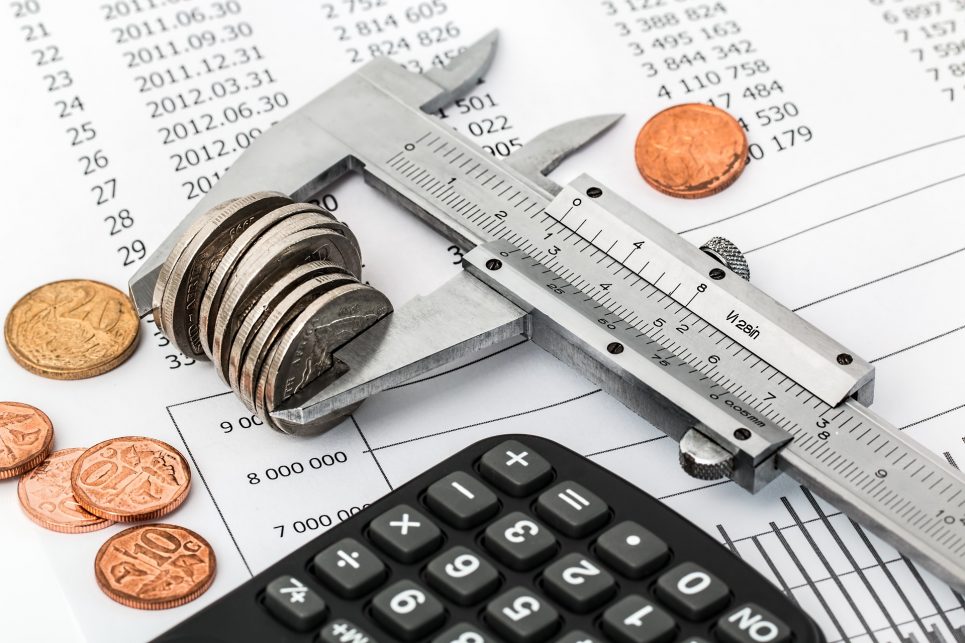Hardcore budgeters know what it means to strip their spending to the bare minimum to save more, pay off debt, and invest in a better future. As you examine your current budget, it can feel overwhelming to look at various categories and figure out where you’re spending too much, so start with just a few areas.
1. Air Conditioning
Air conditioning is an absolute necessity in many parts of the world, especially in humid climates or those that reach over 90 degrees in the summer. It not only keeps you cool, comfortable, and healthy, but it also protects your furniture, food, and other items throughout the house from warping or spoiling in the heat.
Most people are overpaying on their bills, however. While you can’t do much about electricity or natural gas rates in your area, you can learn to live with a slightly higher temperature. By increasing your thermostat by 8 degrees for 8 hours every day, you can reduce your bill by 10 percent.
Additionally, you might be overpaying because your AC unit is damaged, improperly installed, or inefficient. If your AC isn’t working properly, having it repaired could save you hundreds. Replacing the unit with a more energy efficient model when the time comes will also yield huge savings.
2. Brand Name Foods
It’s true that some brand name foods are totally worth it. Nothing tastes like Oreos, for example. But there are many other foods that taste only marginally different in off-brands.
Can you really taste the difference between your Lucky Charms and the off-brand version? If so, is it worth paying an extra two dollars per box to get it? Evaluating your grocery list with this thought in mind can significantly reduce your grocery spending.
3. Life Insurance
A good life insurance policy is important, but you don’t have to sacrifice coverage to lower your bill. Sometimes, an agent who’s trying to increase their commission will tack a few extras onto your policy, driving up the price. You might not notice the difference until you look closer.
Of course, extra coverage isn’t all bad, but when you’re trying to cut costs, a premium that’s 25 percent higher because of unnecessary extras can strain your bank account.
4. Car Insurance
The same goes for car insurance. Double check that your insurance agent hasn’t tacked on unnecessary options and consider if you need full comprehensive insurance for your vehicle.
Additionally, car insurance companies increase their rates slightly as time goes on, so you could be overpaying and not even realize it. Shop around for a lower rate. Oftentimes, your current insurance company will match it.
5. Bottled Water
Bottled water is an unnecessary luxury for most people. The plastic bottles are bad for the environment, and it’s a giant waste of money. While you’re spending $1 per bottle in some cases, you could be using a filtered reusable water bottle, a filtered pitcher in your refrigerator, or you could just drink the faucet water. You might not like the taste as much, but your taste buds will adapt, and your wallet will thank you.
6. Car Detailing
It’s great to have your car cleaned inside and out, but most car detailers charge more than it’s worth for the service. You’re paying them $200+ when you could simply take two hours out of your Saturday morning to do it yourself. You might even do a better job because you’ll never miss the spots that the detailers did.
7. Household Cleaning Products
Rather than buying cleaning products one at a time at the store, consider subscribing to a service that sends you cleaning products. Not only is it incredibly convenient to never run out of products, but it also saves you money.
For example, Amazon Subscribe and Save amounts to 5 percent in savings for products that are shipped to your door at specified intervals. They’re usually shipped in bulk as well, saving you money per ounce.
You could also make your own cleaning products. A mixture of vinegar, dish soap, and water makes an all-purpose cleaner that you can use almost anywhere throughout your house. It cleans better, too!
These are just a few of many ways that you could be saving money. Start with these areas, and look for other ways to cut costs and increase your financial independence.
